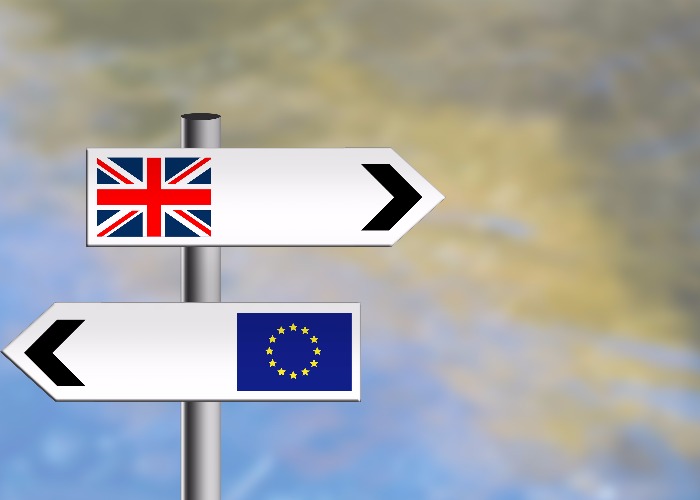Brexit what it could mean for expats' healthcare, pensions, jobs and residency

With the polls evenly poised, we look at how Brexit might affect the two million Brits living abroad
With just over six weeks until the nation votes on the EU referendum, the impact on the expat community is still shrouded in uncertainty.
That's because the effects for the estimated two million Brits currently living in Europe depend very much on the type of deal that is struck if we vote to leave on 23 June.
A report by the House of Lords European Union committee this week warned exiting Europe would leave expats in limbo, as discussions over their rights as non-EU citizens could be lengthy and complex - probably not want you wanted to hear.
However, the Adam Smith Institute (ASI) think tank argues that the likelihood would be the Union would offer the UK an “off the shelf” European Economic Area (EEA) deal, which would have no impact on Brits at all.
"The EEA option would have almost no effect on expats, or much else, because Britain’s single market participation and the four freedoms would stay intact at exit," said ASI fellow Roland Smith.
So, with certainty the missing component in all of this, let’s take a look at the areas that could be impacted if we leave the EU.
Healthcare
At present anyone over the state pension age living in Europe can access free healthcare. If we leave the EU, there is a danger that these expats will have to pay for treatment or buy health insurance - both of which could prove costly.
However, experts claim this isn’t likely since the UK pays a pretty hefty amount to countries in the EEA to cover Brits healthcare. The Department of Health says it reimburses other EEA countries and Switzerland for the cost of providing treatment to “people we are responsible for under European Union law, irrespective of nationality”. Furthermore it would give the UK cause for following suit and denying healthcare to EU nationals living here.
Pensions
The impact on state pensions for retirees living in Europe depends largely on what agreements would be in place in the event of a Brexit. The basic rule is that British citizens who retire abroad do not get the yearly state pension increase unless there is a reciprocal agreement in place.
That agreement is in place in parts of Europe but - and here’s the potential stumbling block - only for countries that were part of the EU before 1981, after which the Government stopped making such agreements. So, retirees in the newer additions to the Union (most of Eastern Europe as well as retiree hotspots like Spain and Portugal) could see their pensions frozen if we’re no longer part of the EU.
Shield your investments from the taxman: compare Stocks & Shares ISAs
Employment
As citizens of an EU member country, expats enjoy a range of rights. These include the right to work and the right to set up a business. If the UK leaves the EU it’s possible expats would have to apply for work permits - although this will be a decision for each country to make individually and as such could differ from country to country.
Property
While there’s little chance of the Union deciding all expats must be shipped back to their homeland, the countries in it could make things trickier for Brits if they feel so inclined. The rules surrounding tax - including inheritance tax - differ for EU and non-EU members and there has been talk that taxes could rise for British nationals.
However, it’s not all bad on the property front. A new EU regulation on mortgage lenders which makes lending to expats (i.e. offering foreign currency mortgages) more complex have led to a number of lenders pulling out of the expat market. Just this week Natwest and RBS became the latest lenders to do so. If the UK was to leave the union, lenders may be more willing to offer loans to Brits abroad.
Residency
Perhaps one of the biggest concerns for Brits living in Europe is residency. At present, being part of the EU guarantees citizens from all member states the right to free movement to other EU countries. Leave the Union and we lose that right. Or at least that’s the worry. In fact the general consensus is that, under the Vienna Convention 1969, Brits who are already living in Europe would be able to continue to do so. Anyone wishing to move to Europe following a Brexit however would have to apply for a visa.
Value of the pound
An indirect effect of the referendum has been a fall in the value of the pound as uncertainty surrounding the issue takes hold. If expats’ main source of money comes from the UK (as would be the case with pensioners) they could see they’re spending power significantly reduced.
Earlier this week, the National Institute of Economic and Social Research claimed sterling could plummet 20% against major currencies if we vote to leave.
Nothing is irreversible
If the out campaigners emerge victorious and the Union decides to implement all of these possible changes worry not - according to the House Of Lords EU committee there’s always a chance that we could rejoin and everything could go back to normal.
Find the right mortgage deal for you with loveMONEY
What to read now:
Workers who retire later live longer, says new study
Travelling to the US? Don't get caught out by this new passport rule
Comments
Be the first to comment
Do you want to comment on this article? You need to be signed in for this feature